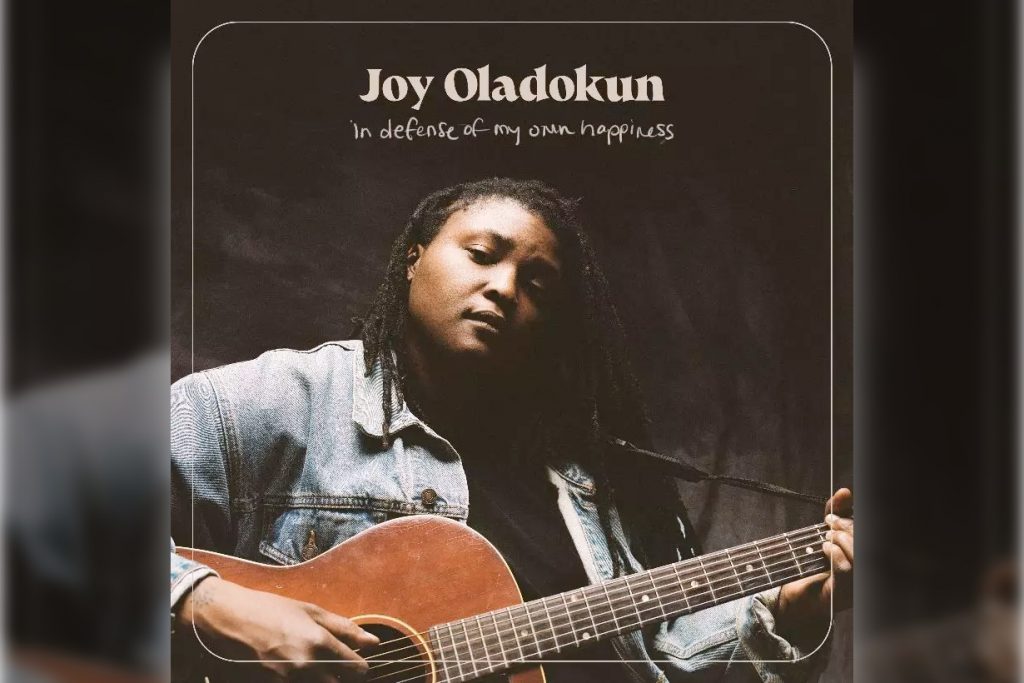Oladokun Weaves the Personal and Political in Debut
By Will Groff, Staff Writer

in defense of my own happiness isn’t exactly the “happy” album one might expect out of Nashville; there are no pop-country paeans to dirt roads and cutoff jeans (thank God). Rather, the major-label debut from Joy Oladokun — which consists largely of material released over the last couple years and follows last year’s retroactively titled in defense of my own happiness (the beginnings) — finds the singer-songwriter fusing elements of folk, pop, and hip hop for open-ended explorations of identity.
Oladokun styles herself the “trap Tracy Chapman” and credits her interest in pursuing music to a formative viewing of Chapman’s legendary performance at Nelson Mandela’s 70th birthday party. But whereas Chapman’s best-known songs are stunningly direct, Oladokun tends to take a more metaphorical approach. “I saw God out on the block today/He was darker than the preachers say,” she sings on the stark “i see america,” an evocative vision from the present that bears the influence of Chapman’s protest songs but is decidedly Oladokun’s own.
The second verse describes a mother who “lets her tongue slip with a glass of wine,” one of several moments on the album where the personal and the political interweave. Likewise for the open-hearted “wish you the best,” which finds Oladokun and co-writer Jensen McRae granting grace to a “loaded memory” over a narcotic guitar riff. “I have a complicated relationship with my exes and America,” Oladokun tweeted upon the song’s release in January. “This song is about both.”
Empathy is an obvious guiding post for Oladokun and a recurring theme on the album. But there are times when compassion fails, as when Oladokun severs a toxic relationship on the crackling “sorry isn’t good enough” or confronts family trauma on the synth-inflected “let it be me.” “I grew up scared of my father,” she sings on the latter, with a line about “that goddamn rainbow parade” spelling out the obvious subtext. As any queer person knows, happiness often begins with self-preservation.
Oladokun spent several years playing guitar in her local church band, an experience that clearly informs her thematic approach. Religious references abound across the album’s 14 tracks; Oladokun alludes to baptism at key junctures, and relates her experiences in terms of heaven and sin. She told NPR Music that “sunday” was born out of “wanting to tell the stories of LGBTQ people of faith … and how they redefine community and love and safety for themselves after coming out of the closet.”
Similarly, “look up” and “if you got a problem” operate in an inspirational mode, and one gets the sense that Oladokun writes for others as much as for herself. Her lyrics tend to favor universality over specificity, which can lead to occasional fogginess. There’s no requirement for art to be confessional, but in defense of my own happiness is strongest at its most intimate and immediate, as on the gospel-tinged closer “jordan.”
Like much of the album, the song finds dogma at odds with self-expression, locating salvation not in organized religion but in the comfort of a healthy relationship. “You loved me though I was not lovely or deserving,” Oladokun sings in the second verse. It’s a straightforward sentiment, but it feels cathartic.